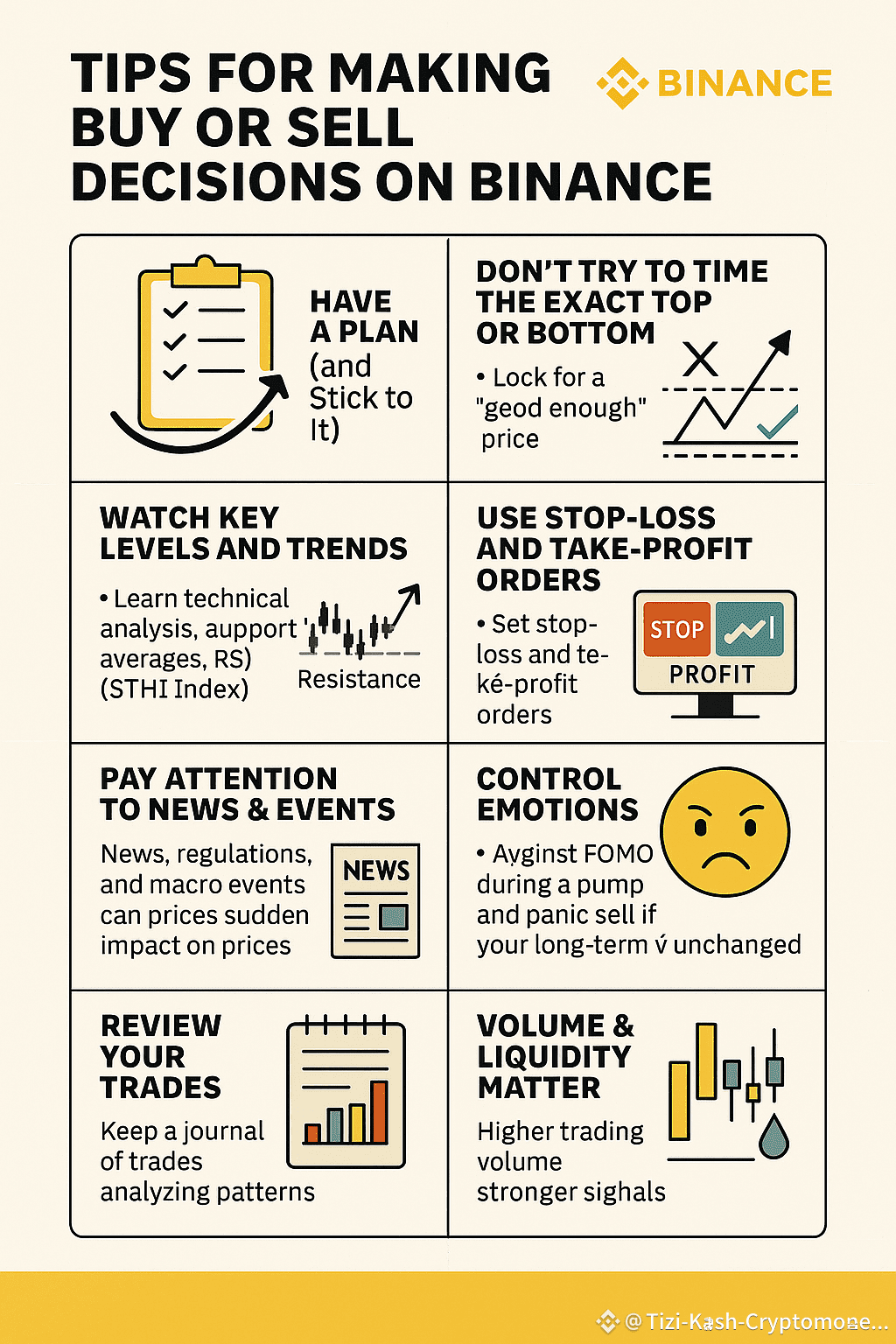These don’t guarantee profits (nothing does), but they reduce emotional mistakes and improve your chances of success:

📊 1. Have a Plan (and Stick to It)
Decide why you’re trading: short-term profit? long-term investment? hedging?
Set clear entry and exit points before you click “Buy.”
Example: I’ll buy at $X and sell if it reaches $Y or if it drops to $Z (stop-loss).
⏳ 2. Don’t Try to Time the Exact Top or Bottom
No one can consistently buy at the lowest and sell at the highest.
Look for a good enough price rather than waiting for “the perfect price.”
Use dollar-cost averaging (DCA): buy or sell small amounts at regular intervals to reduce risk.
🔍 3. Watch Key Levels and Trends
Learn basic technical analysis (TA):
Support & resistance levels.
Moving averages (e.g., 50-day, 200-day).
RSI (Relative Strength Index): >70 = overbought, <30 = oversold.
If the price breaks above a strong resistance with high volume, it may signal more upside.
If it breaks below support, it could fall further.
🤖 4. Use Stop-Loss and Take-Profit Orders
Avoid staring at charts all day by setting:
Stop-loss: automatically sells to limit your loss.
Take-profit: automatically sells to lock in profits at your target.
📰 5. Pay Attention to News & Events
News, regulations, and macro events can move prices suddenly.
Earnings, ETF approvals, Fed interest rate decisions, or big hacks — these can change sentiment quickly.
🧊 6. Control Emotions
Don’t FOMO (Fear Of Missing Out) into a pump — wait for a pullback.
Don’t panic sell during a dip if your long-term view hasn’t changed.
Emotional decisions often lead to buying high and selling low.
🔁 7. Review Your Trades
Keep a journal of your trades: why you entered, why you exited, what worked, what didn’t.
Over time, this helps you see patterns in your behavior.
🚦 8. Volume & Liquidity Matter
Higher trading volume = stronger signals.
Avoid low-volume coins where it’s hard to get in and out without moving the price.
🪙 Example Strategy:
✅ Long-term investor:
Buy during market weakness (e.g., when fear is high).
Sell some when everyone is euphoric and prices feel overheated.
✅ Short-term trader:
Buy near support with tight stop-loss.
Sell near resistance or when indicators show overbought.
🚨 Bonus Tools on #Binance:
Use the “Depth Chart” to see buy/sell walls.
Check the Funding Rate on Futures — extreme rates often precede reversals.
Use the “Spot Grid” or “Auto-Invest” features if you’re unsure about timing.
#XRPPredictions #BinanceSquareTalks #StrategyBTCPurchase #ShariaEarn #ArbitrageTradingStrategy


